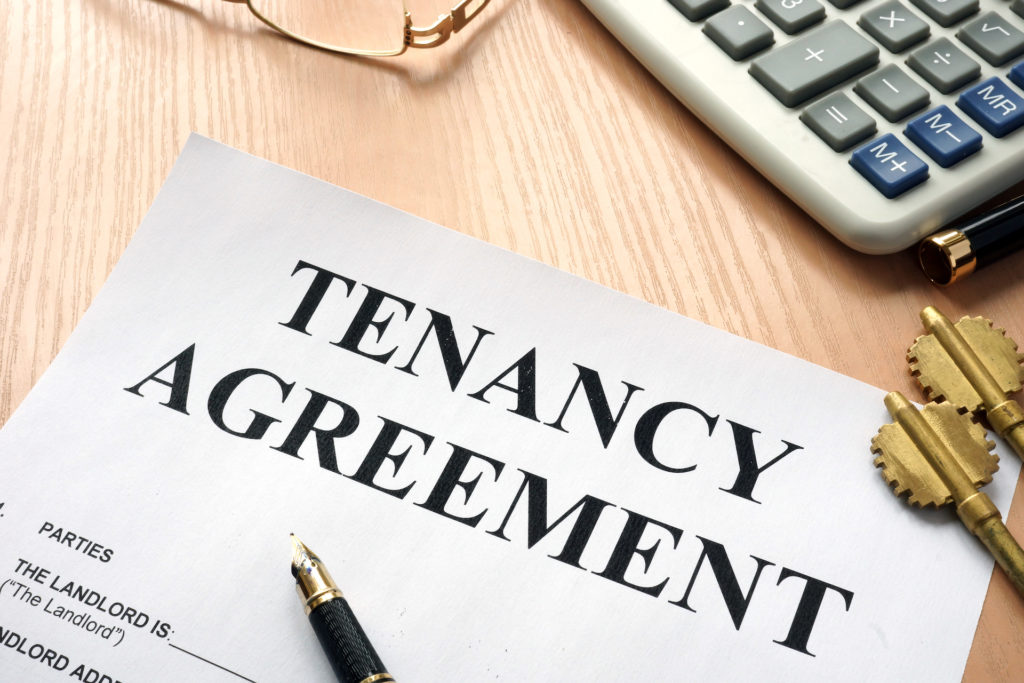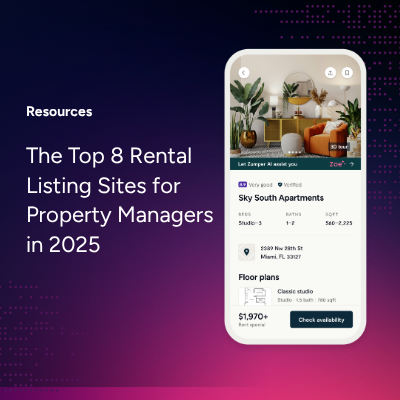
As a landlord, you may encounter certain situations when a tenancy-at-will agreement makes sense for both you and a prospective renter. Understanding how tenancy at will works will help ensure you fulfill the legal requirements of this agreement. You can also decide whether you should use a tenancy-at-will agreement in your specific situation or whether another agreement, such as a traditional lease, would benefit you more.
What is tenancy at will?
Tenancy at will is an agreement between a landlord and renter that either party can terminate at any time. These agreements exist without a lease or a contract. They typically do not specify the duration of the rental or details for payment exchange. You may also hear this type of agreement referred to as an “estate at will,” “month-to-month,” or “at-will” agreement.
Tenancy-at-will agreements must follow state law, and terms may vary depending on your state. Federal law will also become relevant if a party to the agreement raises the issue of discrimination.
You will have a tenancy-at-will agreement if a renter has not signed a contract or lease specifying the tenancy’s end date. Typically, tenancy-at-will agreements are verbal agreements. However, you can still have a tenancy-at-will agreement if you have a written agreement that states the rent price and other terms, as long as the contract does not specify the rental period.
Why use a tenancy-at-will agreement?
At-will tenancy offers potential benefits for both renters and property owners who want a flexible rental arrangement. These agreements give both you, the landlord, and your renters flexibility to change the rental situation without breaking an official contract.
You can use a tenancy-at-will agreement to define the relationship between you and someone renting your property. The strict terms typically contained in a lease agreement are as follows:
- Not present
- Defective in nature
- Expired
At other times, you may choose to create a tenancy-at-will agreement at the start of the landlord-renter relationship. Many tenancies at will involve parties who know each other. These individuals may include a previous renter whom you allow to continue renting from you or a family member.
Tenancy-at-Will Example
Your cousin’s best friends are a couple in the process of building a dream home, but they need somewhere to live until construction is complete — and they don’t know precisely when this completion will happen. You agree to rent the couple a unit in your building until they can move into the new home. You do not define the rental period. Either you or the couple could change the arrangement at any time, although you both must typically give one another reasonable notice.
How does tenancy at will work?
If you give a renter permission to rent a unit or house but do not sign a lease, you and your renter will have a tenancy at will agreement. No formal contract exists to specify the length of time during which the renter’s tenancy will occur.
Tenancy-at-will agreements may be effective if:
- You have an oral agreement in place of a written agreement between you and your rente
- You have a written agreement that states that the tenancy is on a month-to-month tenancy basis
- You have a written agreement that does not designate a specific timeline for the agreement
- A renter is continuing the tenancy after the original lease expired and did not sign a new lease agreement
Tenant at Will vs. Holdover Tenant
A tenant at will is not a holdover tenant, although both renters do not have a formal rental agreement. A holdover tenant is a renter who stays after a fixed-term agreement expires, sometimes without the landlord’s permission. A tenant at will, on the other hand, will have the landlord’s consent to continue renting the property.
If you have a holdover tenant and keep accepting rent payments, that tenant can legally occupy the unit. If you do not accept rent payments, however, that tenant becomes a trespasser. The individual is legally required to move out of the property. If the renter does not vacate the property, the landlord can start eviction proceedings.
Can you vacate a tenancy at will?
Although no formal agreement exists with a tenancy-at-will arrangement, you must give a notice to vacate to terminate the agreement. Even without a written agreement, both the landlord and renter can expect certain legal protections to govern their relationship.
For example, as a landlord, you will still need to provide a safe living environment and give the required notice before entering the unit your renter occupies. Likewise, the renter must keep making rent payments and follow any agreed-upon rules. The renter will also continue to be responsible for damages beyond normal property wear and tear.
What happens if your tenancy-at-will agreement does not have written, agreed-upon requirements that deal with notification of intent to vacate? A 30-day notice for both the landlord and renter is standard. In other words, whether you want your renter to vacate or your renter intends to leave, the party that desires to end the agreement must give the other party a 30-day notice. Traditionally, either party will provide notice in writing, but the written notice does not usually cite a reason for the request.
Certain circumstances exist when you can vacate a tenancy-at-will agreement without a notice to vacate. Examples include the death of a renter or property owner or the landlord’s decision to sell the property. In some locations, landlords can give shorter notice to vacate if the renter causes severe property damage, perpetrates sexual assault or domestic violence, is in arrears for rent, or commits other offenses.
Knowing that a tenancy-at-will agreement could be an option for you helps you choose the best arrangement with a potential renter for your specific situation. At the same time, understanding how a tenancy-at-will agreement works allows you to make sure you’re following all regulations.
Looking to make more money with fewer vacancies and no missed rent? List your property for free on Zumper and find your next tenant.



